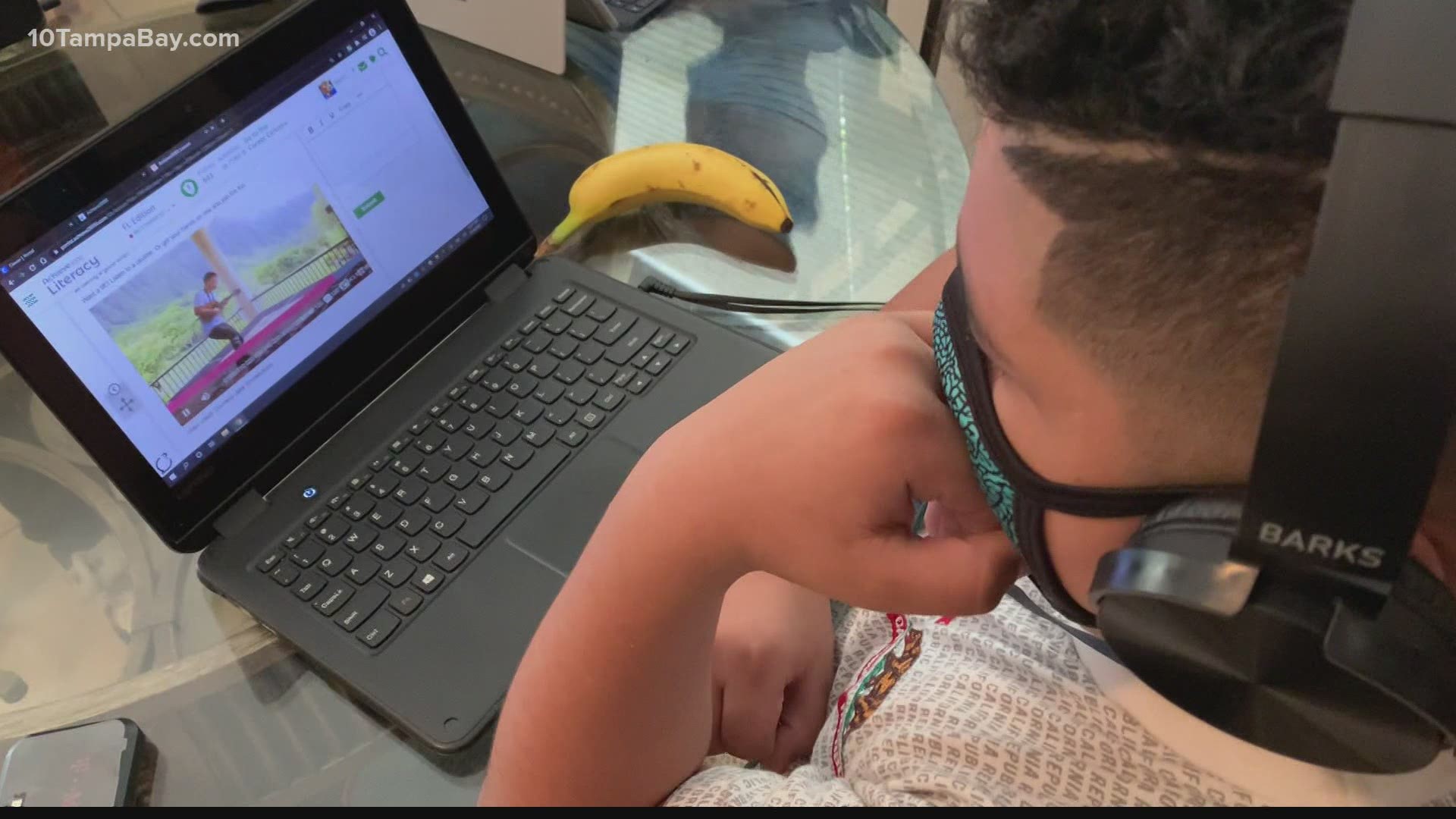Let's be honest, it's hard to tell the difference between true and false information online. Especially with how advanced photoshop and editing have become. Now, a new program launched by Cyber Florida is working to better prepare local students how to identify fake news and misinformation.
"They can put someone's face onto a video and it's almost a seamless transition," student Jonathan Lewis said.
19-year-old Jonathan is talking about Deep Fakes, one of the more savvy manipulation of online videos. "As time goes on and it gets perfected, it will get difficult to tell the difference between real videos and those false ones," he said.
Identifying Deep Fakes, inaccurate news stories and misinformation is the goal of Cyber Florida's new digital literacy program. The program is focusing on students K-12 throughout the state and teaching them how to critically think while facing a growing amount of fake information online. This is something that Jonathan's father is already teaching him.
"I'll ask him probing questions all the time about YouTube videos he watches and my son feels like I'm attacking him but what I'm trying to do is trying to get them to think critically and realize they are only hearing one side of the story," Jonathan's father Kimball Lewis said.
The program also focuses on finding the information's source.
"I can do a quick Google search to find that out and to find the quality of the source because if it's coming from some random person on Twitter that's probably not the most trustworthy source," Jonathan said.
Kimball says he also teaches his son the importance of context because even if what you see is true there is always more to the story.
"You can see 5 seconds of a video that is true but if you don't see what happened before and after that can completely change the meaning of it," Kimball Lewis said.
He says students equipped with this knowledge will be much better prepared for the real world. "That's why they need to learn these critical thinking skills because they need to understand not everything they see is true," he said.
The new program comes as Florida lawmakers are cracking down more on threatening social media posts. A bill is heading to the state senate that would expand penalties for written threats to include online posts.
- How long does COVID-19 vaccine immunity last?
- Manatee County declares state of emergency over breach at former Piney Point phosphate plant
- Surgeon and teen share game of soccer after heart transplant
- Why some Florida teachers aren't happy with DeSantis' proposal to give every teacher a $1K bonus
- 51 killed in Taiwan train crash
- What to do this Easter weekend across the Tampa Bay area
►Breaking news and weather alerts: Get the free 10 Tampa Bay app
►Stay In the Know! Sign up now for the Brightside Blend Newsletter

